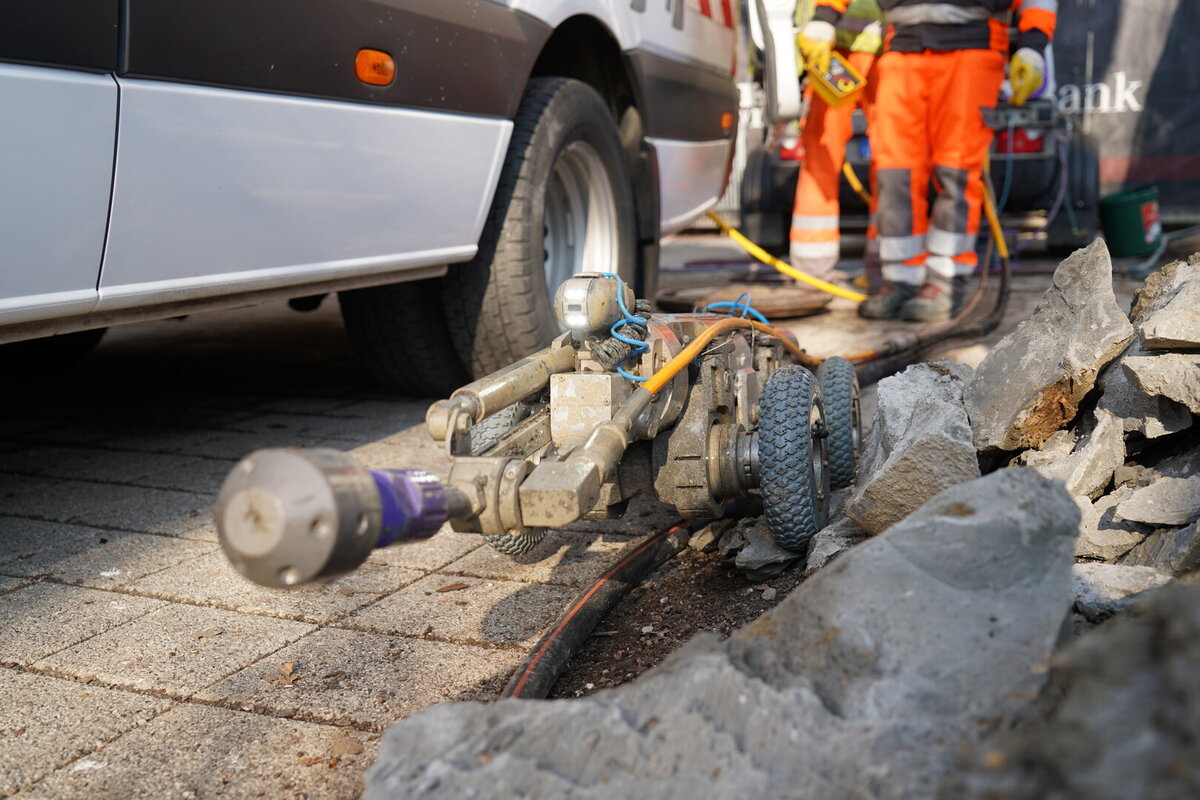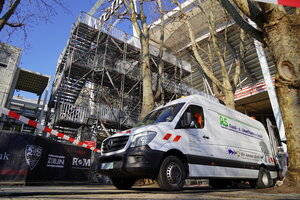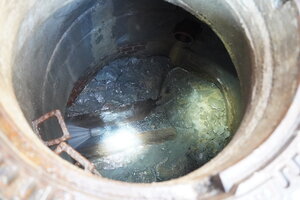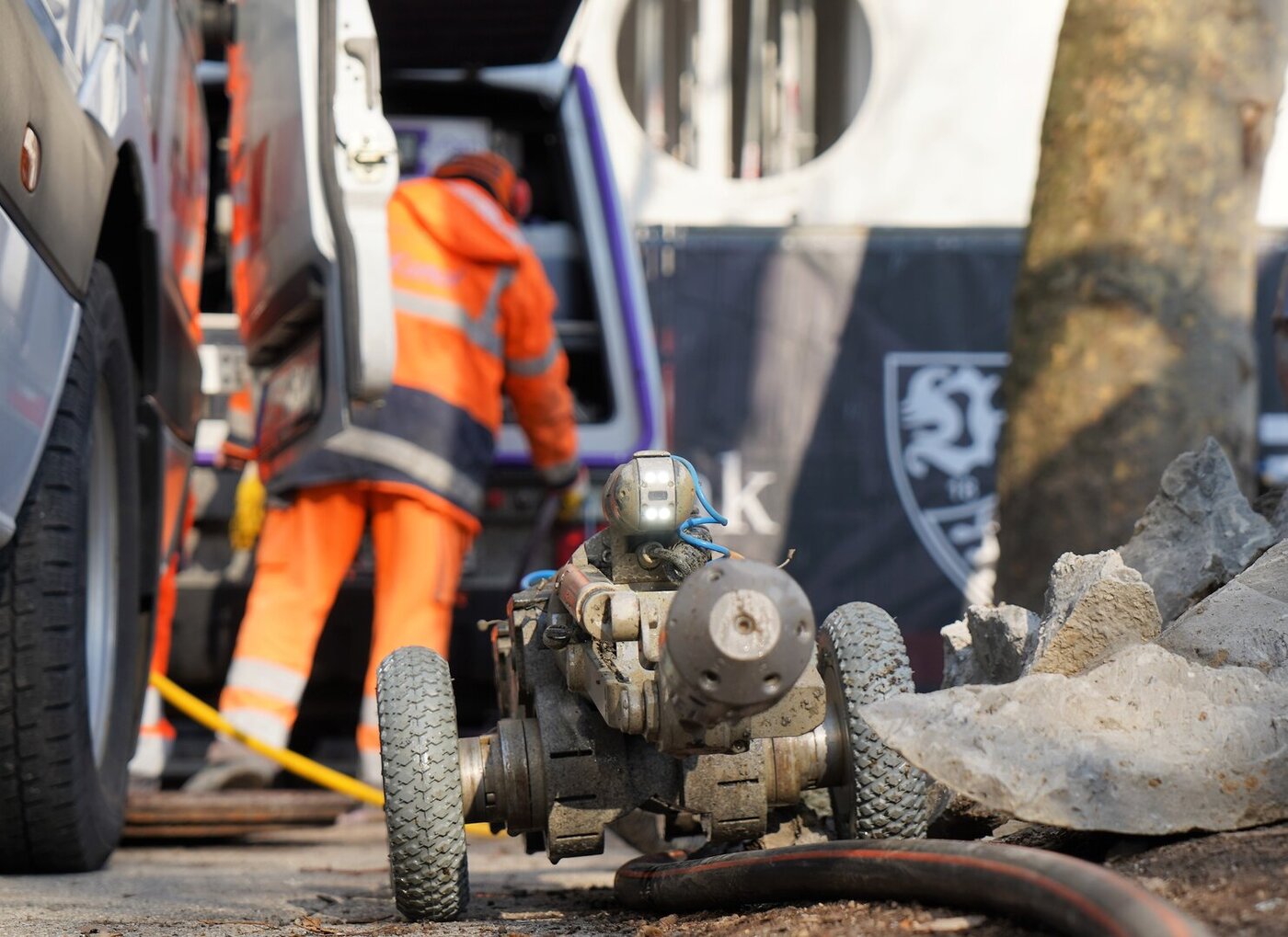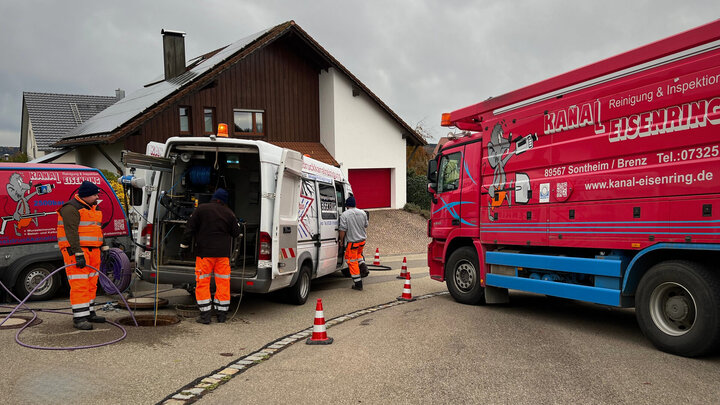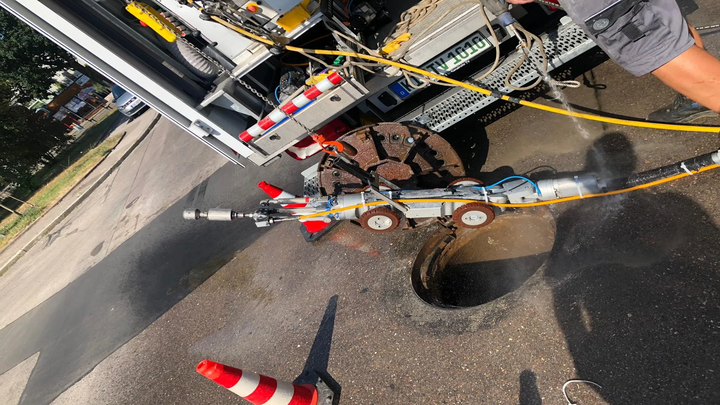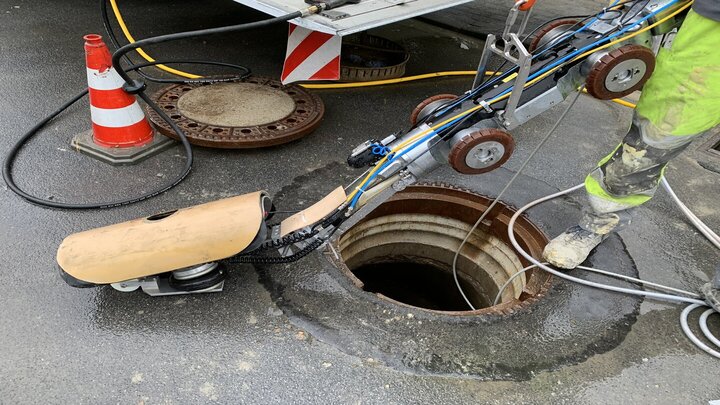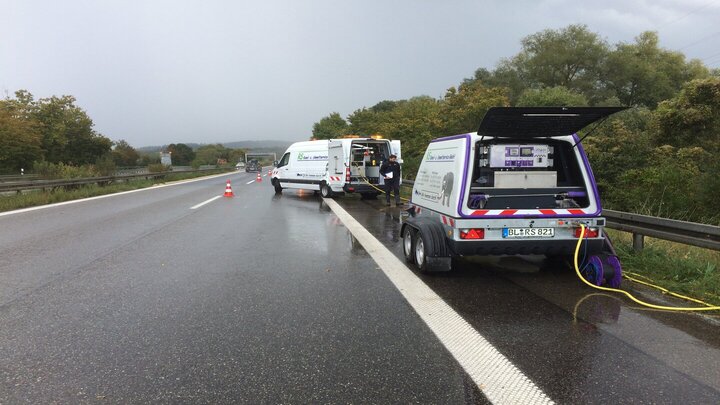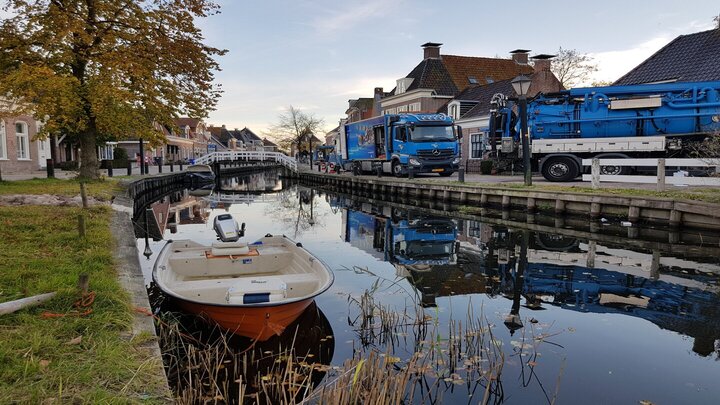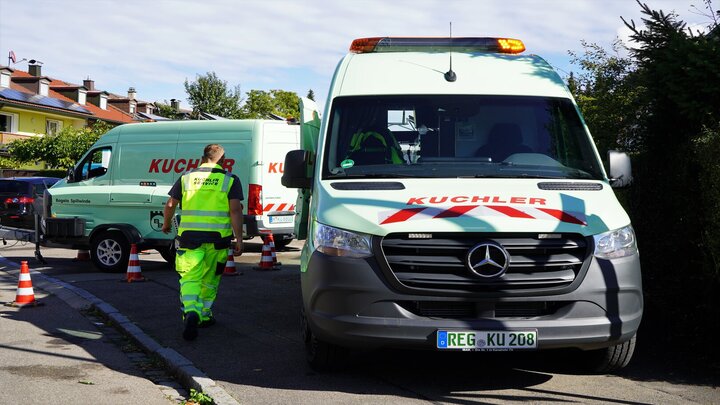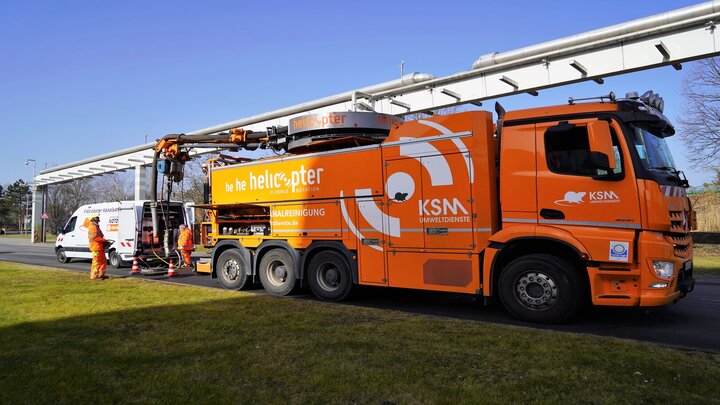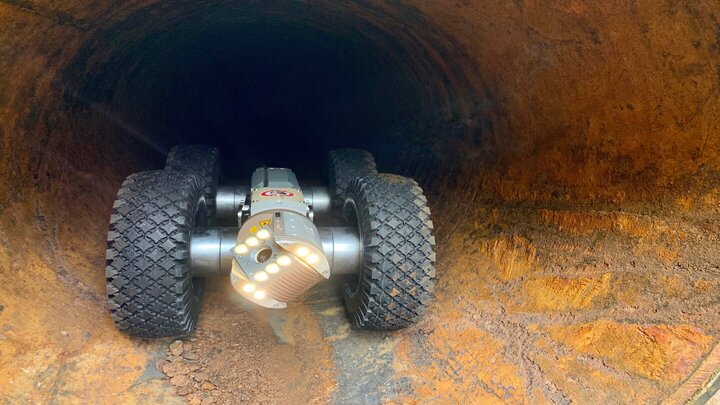Modernization of the VfB Arena in Stuttgart
Systems and technologies involved
- MicroGator vehicle system with MicroGator GT, CutterCam and falch ultra-high pressure water jet nozzle
- IKAS evolution
Job
Stadion NeckarPark GmbH & Co. KG commissioned the working partnership 1893 Ed. Züblin AG/ROM Technik GmbH & Co. KG with the modernization of the Mercedes-Benz Arena. In the course of the extensive work at the Stuttgart stadium, a 400 cubic metre concrete slab was laid for the new lower tier of the main stand in January 2023. RS Kanal- und Umweltservice GmbH was then called to the arena to restore the flow of 6 sewer lines of circular cross-section with dimensions from DN 200 to DN 800.
Challenge
The pipes were completely sealed with concrete over a total length of 400 metres, and since they run directly under the main entrance for VIP guests, the concrete had to be removed without excavation. In addition, match operations had to be maintained during the work, making it necessary to quickly repair the reaches.
Solution
An ultra-high pressure water jet is generated by guiding water at a very high discharge velocity through a small-diameter nozzle. The water is under high pressure, which can range from a few hundred to up to 2500 bar, depending on the application. The kinetic energy of the water jet generated in this way is sufficient to cut a wide variety of materials such as steel, concrete, plastics and sintering or to remove their surfaces.
In order to be able to use an ultra-high pressure water jet in sewers, RS Kanal- und Umweltservice GmbH operates a rotating nozzle on the IBAK Robotics MicroGator equipment carrier. This consists of the carriage, the control technology and the colour pan head camera of the MicroGator electric cutting robot. Instead of the connection for the cutting motor, there is a movable tool connection that can accommodate a nozzle and carry the ultra-high pressure water hose. The connection allows the tool, in this case rotating water jet nozzles from the company falch, to be tilted, panned and inclined. Tobias Sigel works with a falch trail jet 125 system integrated into a vehicle trailer. This can pump 11 to 26 litres of water per minute and compress the water pressure continuously from 600 bar to up to 2500 bar. Thanks to the 400-litre water tank, he can work autonomously without a water supply for a short time if necessary.
Result
The metres-long blockage was removed quickly and economically without damaging the pipe substance. Once again, he sees the result in Stuttgart as confirmation that water jetting technology is the most economical option for large-scale and massive foreign bodies in sewers.
Visual control of the work progress was provided by the CutterCam observation camera on the MicroGator equipment carrier. Costel eliminated the dirt arising during the removal process by panning the camera over a rubber lip. The operator also used the camera to check the progress of the removal process in Stuttgart. He applied the water pressure as required and adjusted the position of the nozzle specifically to suit the area to be worked on. In this way, RS Kanal- und Umweltservice GmbH removed a total of 35 metric tons from the sewer under the Stuttgart Arena over a distance of 400 metres without excavation within 2 months.
Company introduction

RS Kanal- und Umweltservice GmbH is a pioneer in the use of falch nozzles on the MicroGator equipment carrier from the manufacturer IBAK Robotics. The combination of sewer robotics and ultrahigh-pressure water jets has been proving its worth for the Balingen-based company since 2017. Managing director Tobias Sigel has two vehicles equipped with both the MicroGator milling robot and the MicroGator equipment carrier for ultrahigh-pressure water jetting technology in continuous use. In June 2021, he took over the company together with his sister Natalie Fritz. The 28-strong team carries out inspection and cleaning work for district offices, industrial companies and private clients, among others, including 24-hour service for Stuttgart Airport and regular assignments on highways and in tunnels. Milling jobs like this one at the VfB stadium account for around 40 percent of orders.
